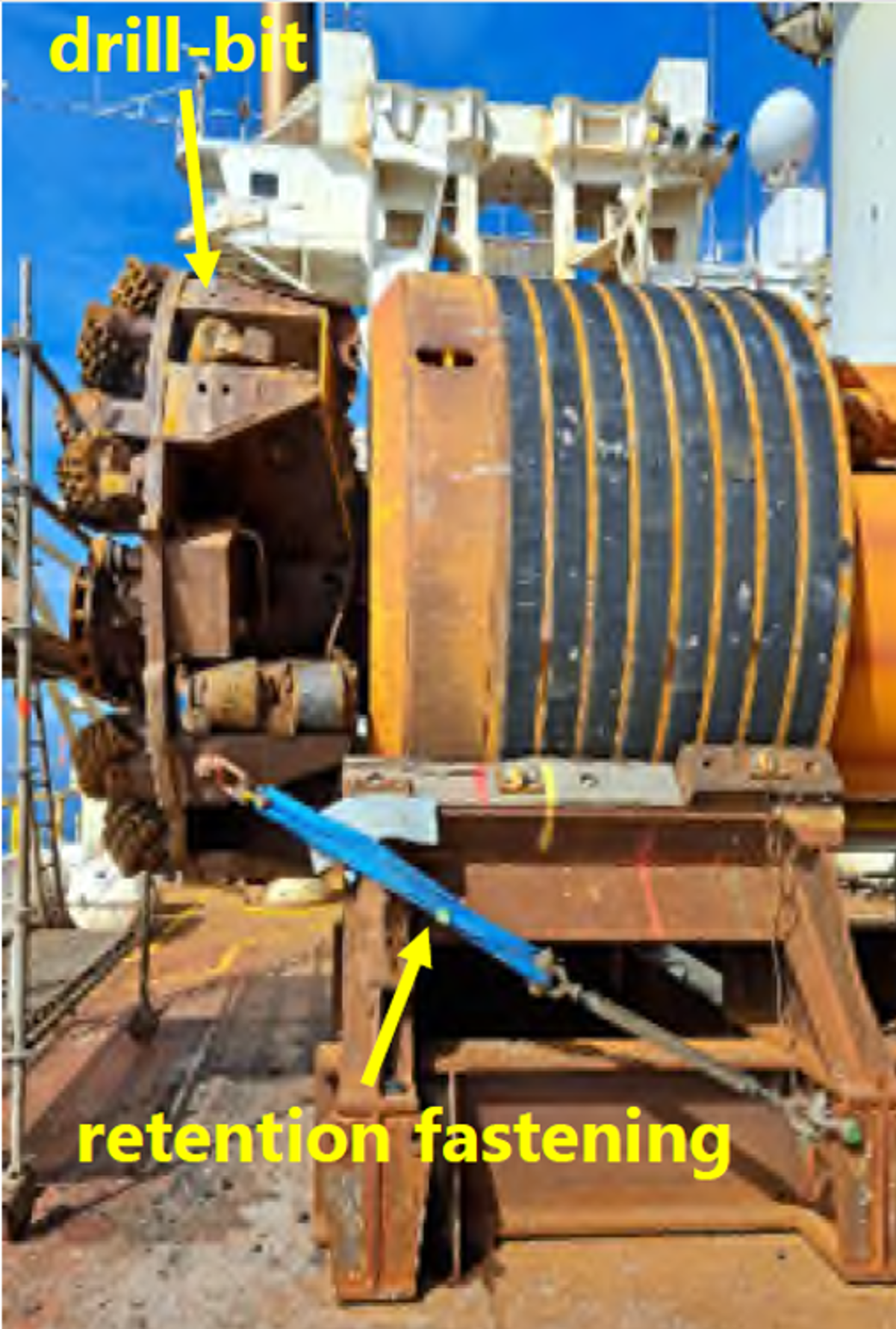Unplanned rotation of drilling machinery
- Safety Flash
- Published on 15 August 2023
- Generated on 24 February 2026
- IMCA SF 20/23
- 2 minute read
Jump to:
A large diameter subsea drill had completed drilling operations and was returned to the vessel’s deck for planned maintenance.
What happened?
Part of the maintenance programme required the drill support system to be energised. As the system was energised, the drill bit unexpectedly started rotating for around 40 seconds.
The retention fastenings, used to secure the drill during maintenance, parted, tangling in the rotating drill-bit.
Nobody was in the vicinity at the time and there were no injuries.

What went wrong?
- Operating procedures were not fully followed by the drilling team, which led to the operating console drill-bit rotation switch being left in the ‘on’ position.
- The was no warning that the system was “live” and that the bit would turn.
- There was no engineering barrier, such as an automatic interlock system which would have prevented inadvertent operation.
- Shift handover was not adequate and did not ensure all safety practices were followed.
- The control measures identified during the task risk assessment and subsequently included in the operating procedure, placed too great a reliance on individuals being aware of the situation (e.g. being aware of the position of control switches etc.) and also a reliance on following administrative controls / check sheets.
Actions
- Following an equipment design review, an isolation interlock was integrated into this equipment.
- Additional procedural steps requiring operator intervention (switching off) were now included in improved operating procedures.
- Improved monitoring of compliance and communication within work teams.
- The importance of engineering controls over and above administrative controls has been reiterated.
Related Safety Flashes
-
IMCA SF 05/22
28 February 2022
-
-
IMCA SF 04/21
2 February 2021
-
-
IMCA SF 12/20
31 March 2020
-
-
IMCA SF 12/15
28 August 2015
IMCA Safety Flashes summarise key safety matters and incidents, allowing lessons to be more easily learnt for the benefit of the entire offshore industry.
The effectiveness of the IMCA Safety Flash system depends on the industry sharing information and so avoiding repeat incidents. Incidents are classified according to IOGP's Life Saving Rules.
All information is anonymised or sanitised, as appropriate, and warnings for graphic content included where possible.
IMCA makes every effort to ensure both the accuracy and reliability of the information shared, but is not be liable for any guidance and/or recommendation and/or statement herein contained.
The information contained in this document does not fulfil or replace any individual's or Member's legal, regulatory or other duties or obligations in respect of their operations. Individuals and Members remain solely responsible for the safe, lawful and proper conduct of their operations.
Share your safety incidents with IMCA online. Sign-up to receive Safety Flashes straight to your email.